
The Pulitzer Prize for Fiction is one of the seven American Pulitzer Prizes that are annually awarded for Letters, Drama, and Music. It recognizes distinguished fiction by an American author, preferably dealing with American life, published during the preceding calendar year.
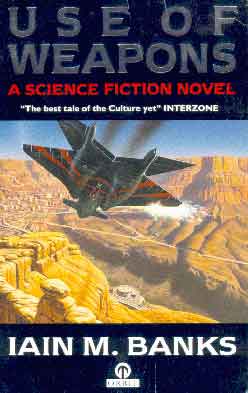
Use of Weapons is a science fiction novel by Scottish writer Iain M. Banks, first published in 1990. It is the third novel in the Culture series.
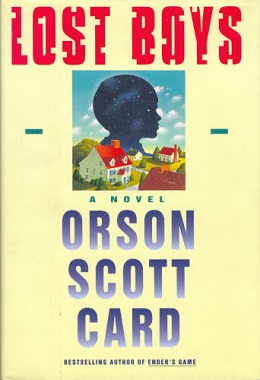
Lost Boys (1992) is a horror novel by American author Orson Scott Card. The premise of the novel revolves around the daily lives of a Mormon family, and the challenges they face after a move to North Carolina. The story primarily follows the family's troubles at work, church, and the oldest child Stevie's difficulty fitting in at school, which lead to him becoming increasingly withdrawn.
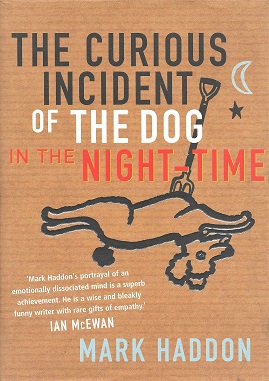
The Curious Incident of the Dog in the Night-Time is a 2003 mystery novel by British writer Mark Haddon. Its title refers to an observation by the fictional detective Sherlock Holmes in the 1892 short story "The Adventure of Silver Blaze". Haddon and The Curious Incident won the Whitbread Book Awards for Best Novel and Book of the Year, the Commonwealth Writers' Prize for Best First Book, and the Guardian Children's Fiction Prize. Unusually, it was published simultaneously in separate editions for adults and children.
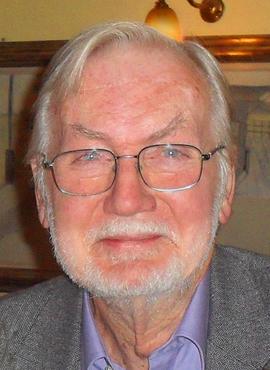
Barry Unsworth FRSL was an English writer known for his historical fiction. He published 17 novels, and was shortlisted for the Booker Prize three times, winning once for the 1992 novel Sacred Hunger.

Konangi is the pen name of the Tamil writer Ilangovan. He is the maternal grandson of the Tamil playwright, lyricist, writer and Freedom fighter Madurakavi Baskaradoss. His father is the Tamil writer Shanmugam and his mother is Saraswathi. His elder brother is the Tamil short-story writer Tamilselvan and his younger brother is Murugaboopathy a contemporary Tamil playwright. He grew up in Naagalapuram, bodinayakanur and Nenmeni Mettupatti and he currently lives in Kovilpatti, Tamil Nadu.

Ali Smith CBE FRSL is a Scottish author, playwright, academic and journalist. Sebastian Barry described her in 2016 as "Scotland's Nobel laureate-in-waiting".
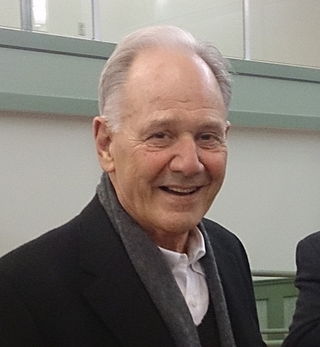
Alexander McPhee Miller is an Australian novelist. Miller is twice winner of the Miles Franklin Award, in 1993 for The Ancestor Game and in 2003 for Journey to the Stone Country. He won the overall award for the Commonwealth Writer's Prize for The Ancestor Game in 1993. He is twice winner of the New South Wales Premier's Literary Awards Christina Stead Prize for Conditions of Faith in 2001 and for Lovesong in 2011. In recognition of his impressive body of work and in particular for his novel Autumn Laing he was awarded the Melbourne Prize for Literature in 2012.
A setting is the time and geographic location within a narrative, either non-fiction or fiction. It is a literary element. The setting initiates the main backdrop and mood for a story. The setting can be referred to as story world or milieu to include a context beyond the immediate surroundings of the story. Elements of setting may include culture, historical period, geography, and hour. Along with the plot, character, theme, and style, setting is considered one of the fundamental components of fiction.

The Road is a 2006 post-apocalyptic novel by American writer Cormac McCarthy. The book details the grueling journey of a father and his young son over several months across a landscape blasted by an unspecified cataclysm that has destroyed industrial civilization and nearly all life. The novel was awarded the 2007 Pulitzer Prize for Fiction and the James Tait Black Memorial Prize for Fiction in 2006. The book was adapted into a film of the same name in 2009, directed by John Hillcoat.
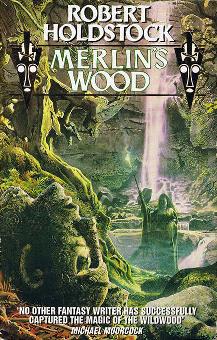
Merlin's Wood; or, The Vision of Magic is a short novel by British writer Robert Holdstock, first published in the United Kingdom in 1994. The novel is considered part of the Mythago Wood cycle, but takes place in Brittany, France instead of Herefordshire, England. The work has all new characters and focuses on the mythical birthplace and burial site of Merlin, the magical wood Brocéliande. Brocéliande is a smaller version of Ryhope wood where British myth predominates.

The Republic of Wine: A Novel is a satirical novel by Mo Yan, which was first published in 1992. The novel explores the relationship between Chinese people and food and drink, and comments on government corruption and excesses. It was translated to English by Howard Goldblatt.
Prehistoric fiction is a science fiction subgenre in which the story is set in the period of time prior to the existence of written record, known as prehistory. As a fictional genre, the realistic description of the subject varies, without necessarily a commitment to develop an objective anthropological account. Because of this, it is possible that the author of prehistoric fiction deals with their subject with much more freedom than the author of a historical fiction, and the genre also has connections with speculative fiction. In many narratives, humans and dinosaurs live together, despite the extinction of the dinosaurs and the evolution of humans being separated by millions of years. The paleontologist Björn Kurtén coined the term "paleofiction" to define his works.

James Crace is an English novelist, playwright and short story writer. Elected a Fellow of the Royal Society of Literature in 1999, Crace was born in Hertfordshire and has lectured at the University of Texas at Austin. His novels have been translated into 28 languages—including Norwegian, Japanese, Portuguese and Hebrew.

Storyteller is a collection of works, including photographs, poetry, and short stories by Leslie Marmon Silko. It is her second published book, following Ceremony. The work is a combination of stories and poetry inspired by traditional Laguna Pueblo storytelling. Silko's writings in Storyteller are influenced by her upbringing in Laguna, New Mexico, where she was surrounded by traditional Laguna Pueblo values but was also educated in a Euro-American system. Her education began with kindergarten at a Bureau of Indian Affairs school called the Laguna Day School "where the speaking of the Laguna language was punished."
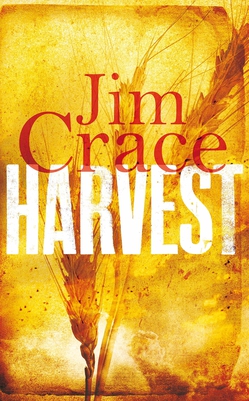
Harvest is a 2013 novel by British author Jim Crace. Crace had stated that Harvest would be his final novel, but it wasn't.
John A. Glusman is vice president and executive editor at W. W. Norton and Company, the largest independent, employee-owned publisher in the United States, and the author of Conduct Under Fire: Four American Doctors and Their Fight for Life as Prisoners of the Japanese, 1941-1945.

Nautical fiction, frequently also naval fiction, sea fiction, naval adventure fiction or maritime fiction, is a genre of literature with a setting on or near the sea, that focuses on the human relationship to the sea and sea voyages and highlights nautical culture in these environments. The settings of nautical fiction vary greatly, including merchant ships, liners, naval ships, fishing vessels, life boats, etc., along with sea ports and fishing villages. When describing nautical fiction, scholars most frequently refer to novels, novellas, and short stories, sometimes under the name of sea novels or sea stories. These works are sometimes adapted for the theatre, film and television.
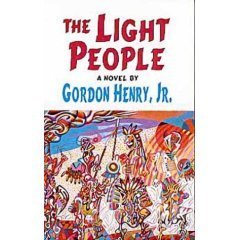
The Light People is a 1994 novel written by Gordon Henry. The book won the American Book Award in 1995. The Light People is a work of Native American fiction, composed of many distinct but ultimately interconnected stories happening in and around an Ojibwe village in northern Minnesota, and the Twin Cities.
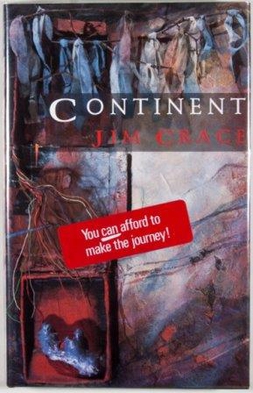
Continent, Jim Crace's first novel, was published in 1986 by Heinemann in the UK and Harper & Row in the US. It won the Whitbread First Novel of the Year Award, the David Higham Prize for Fiction, and the Guardian Fiction Prize. The book consists of seven stories descriptive of life in an imaginary seventh continent. Translations have subsequently divided between providing a title incorporating that gloss, as in the Dutch and Italian, and keeping to the original, as in the Portuguese, Spanish, Czech and Serbian.

















